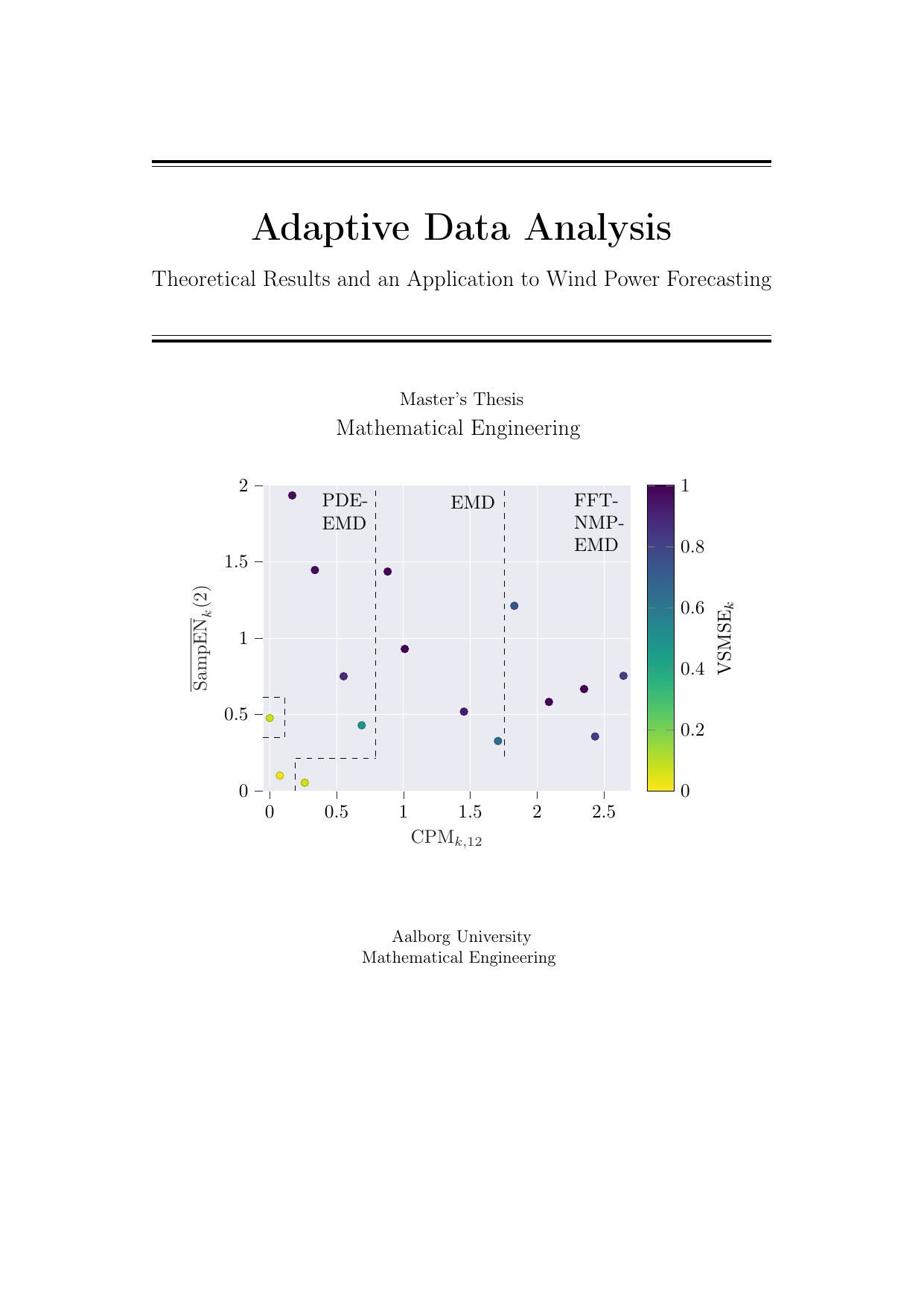
Adaptive Data Analysis: Theoretical Results and an Application to Wind Power Forecasting
Term
4. semester
Education
Publication year
2022
Submitted on
2022-05-31
Pages
113
Abstract
In this thesis, different adaptive decomposition methods are implemented as a pre-processing step for one hour ahead forecasting algorithms in an online setup on the Danish wind power production. Four adaptive decomposition methods have been explored in this thesis, i.e. the empirical mode decomposition (EMD), two compressive sensing based methods, and a partial differential equation based method dubbed PDE-EMD. Additionally, the ability of the EMD in an offline setup has been tested. Relevant theory related to the implemented methods are presented and theoretical properties relating to the uniqueness of the compressive sensing based methods are proven. Initially, properties of the decomposition methods are tested both using simulated examples and the Danish wind power production data. Afterwards, the forecasting algorithms are tested on the data. Here the methods are compared to long short-term memory neural network and autoregressive baselines. For an online setup, it is found that using the PDE-EMD, the results are similar to that of the baselines, whereas the EMD based models and the compressive sensing based models perform worse. However, in an offline setup, the EMD method significantly outperforms the other forecasting algorithms. Based on the findings of this thesis, it is concluded that decomposition based forecasting works great in an offline setup, but more work is needed for it to be applicable in an online setup.
In this thesis, different adaptive decomposition methods are implemented as a pre-processing step for one hour ahead forecasting algorithms in an online setup on the Danish wind power production. Four adaptive decomposition methods have been explored in this thesis, i.e. the empirical mode decomposition (EMD), two compressive sensing based methods, and a partial differential equation based method dubbed PDE-EMD. Additionally, the ability of the EMD in an offline setup has been tested. Relevant theory related to the implemented methods are presented and theoretical properties relating to the uniqueness of the compressive sensing based methods are proven. Initially, properties of the decomposition methods are tested both using simulated examples and the Danish wind power production data. Afterwards, the forecasting algorithms are tested on the data. Here the methods are compared to long short-term memory neural network and autoregressive baselines. For an online setup, it is found that using the PDE-EMD, the results are similar to that of the baselines, whereas the EMD based models and the compressive sensing based models perform worse. However, in an offline setup, the EMD method significantly outperforms the other forecasting algorithms. Based on the findings of this thesis, it is concluded that decomposition based forecasting works great in an offline setup, but more work is needed for it to be applicable in an online setup.
Keywords
Documents
